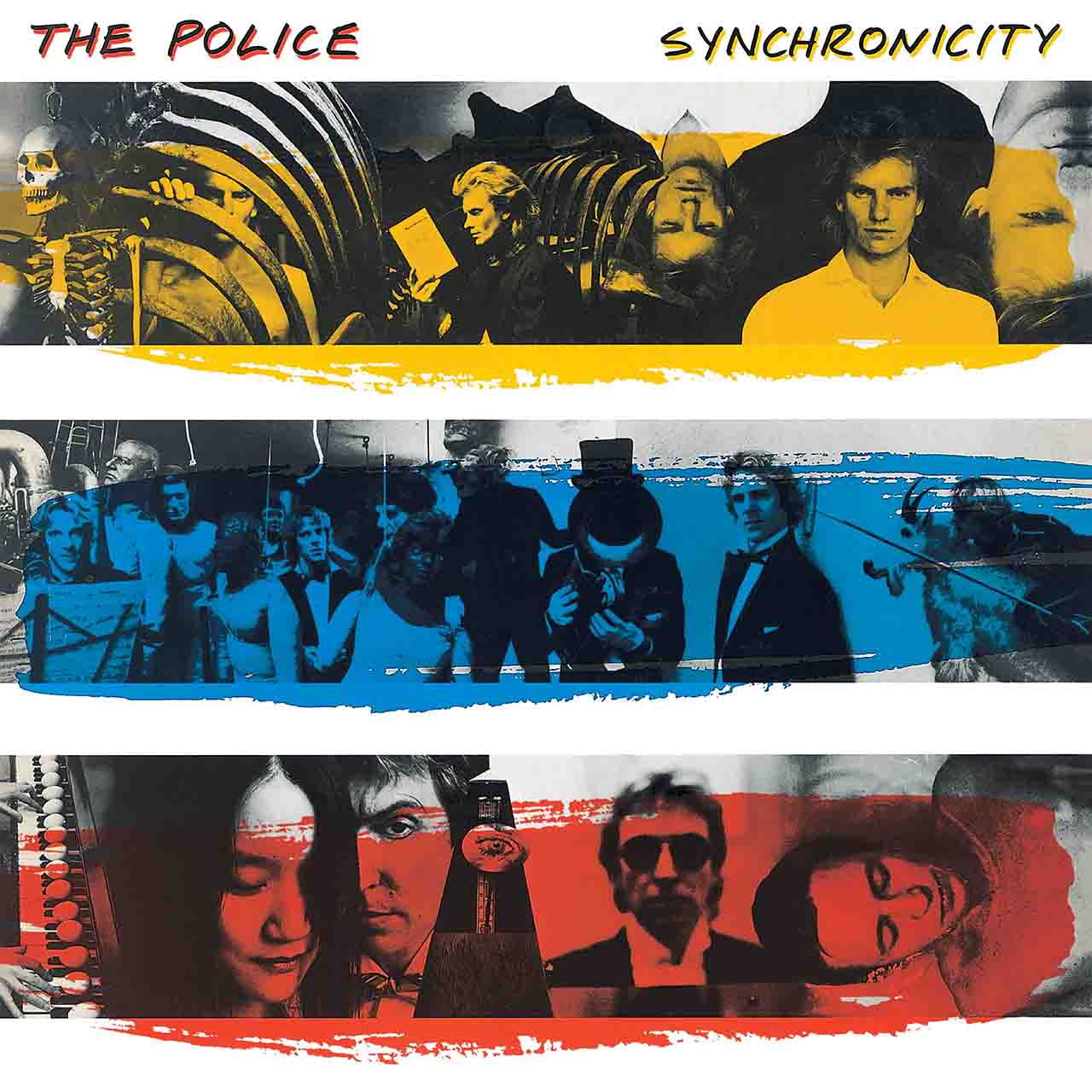Leave it to The Police to release perhaps the most anguished statement of existential despair ever to enter the pop Top 5. After all, they had just taken the ultimate stalker song, the deceptively romantic-sounding “Every Breath You Take,” to No 1. And their first huge US hit was “Don’t Stand So Close to Me,” an insidiously catchy tune about a potentially pervy schoolteacher. So, they were already old hands at turning out transgressive pop smashes.
By the time they headed into the sessions for what would be their final album, 1983’s Synchronicity, the trio was in a state of physical and spiritual exhaustion. And the problems plaguing Sting, specifically, went beyond band and career. He and his first wife had just split after the birth of their second child, and his personal life was in a state of tumult. Oddly, the place where he came to reckon with his feelings was the Jamaican residence previously owned by James Bond author Ian Fleming, where the globe-trotting singer frequently stayed in those years.
Order The Police’s Synchronicity (40th Anniversary Edition) now.
In 1993 Sting would tell Q Magazine, “My marriage had broken up by that point and I sat at the desk where Ian Fleming had written the James Bond books and wrote ‘Every Breath You Take’ and ‘King of Pain’ and ‘Wrapped Around Your Finger.’ That really helped me. It was a healing process.”
Recounting the lyrical evolution of “King of Pain,” he informed Musician’s Vic Garbarini, “I conjured up symbols of pain and related them to my soul. A black spot on the sun struck me as being a very painful image, and I felt that was my soul up there on the sun. It’s just projecting your state into the world of symbolism, which is what poetry’s all about, really.”
When the band convened in Montserrat to cut Synchronicity, they crafted a song that alternates between tight-focus minimalism and Technicolor cinematic sweep, with Copeland shifting from patient marimba lines to whipcrack snare hits as the moment demands. When Andy Summers takes flight on the guitar solo, it’s like a window is opened and all the angst roiling around in the song suddenly soars through it, heading off on a majestic kamikaze flight straight to that black spot on the sun.
“King of Pain” arrived at the peak of The Police’s popularity, but the song kept on speaking to people long after it had outlived the band. The cover versions that arose in the decades that followed attested to both its timeless appeal and its adaptability. How many other ‘80s blockbusters can you think of that were given a delicate acoustic interpretation by Alanis Morissette in 1999 and a cannon-blasting reboot from Mudvayne in 2008?
Order The Police’s Synchronicity (40th Anniversary Edition) now.
